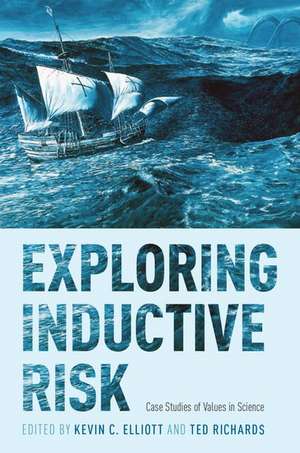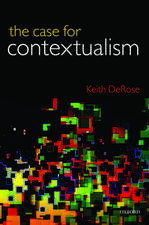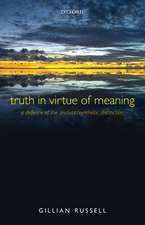Exploring Inductive Risk: Case Studies of Values in Science
Editat de Kevin C. Elliott, Ted Richardsen Limba Engleză Paperback – 27 iul 2017
| Toate formatele și edițiile | Preț | Express |
|---|---|---|
| Paperback (1) | 333.85 lei 32-37 zile | +66.89 lei 7-13 zile |
| Oxford University Press – 27 iul 2017 | 333.85 lei 32-37 zile | +66.89 lei 7-13 zile |
| Hardback (1) | 701.64 lei 32-37 zile | |
| Oxford University Press – 27 iul 2017 | 701.64 lei 32-37 zile |
Preț: 333.85 lei
Preț vechi: 378.59 lei
-12% Nou
Puncte Express: 501
Preț estimativ în valută:
63.90€ • 66.46$ • 53.55£
63.90€ • 66.46$ • 53.55£
Carte tipărită la comandă
Livrare economică 03-08 martie
Livrare express 06-12 februarie pentru 76.88 lei
Preluare comenzi: 021 569.72.76
Specificații
ISBN-13: 9780190467722
ISBN-10: 019046772X
Pagini: 310
Dimensiuni: 155 x 231 x 20 mm
Greutate: 0.44 kg
Editura: Oxford University Press
Colecția OUP USA
Locul publicării:New York, United States
ISBN-10: 019046772X
Pagini: 310
Dimensiuni: 155 x 231 x 20 mm
Greutate: 0.44 kg
Editura: Oxford University Press
Colecția OUP USA
Locul publicării:New York, United States
Recenzii
provides an excellent snapshot of current thinking about inductive risk in philosophy of science.
this collection will provide a valuable point of departure for many future debates in the philosophy of cognitive science, and I would highly recommend it to anyone looking to get involved in these debates
During the last two decades, the various challenges of inductive risk have been addressed by a number of philosophers of science in diverse contexts. Thus, it is fortuitous that there is now a volume available providing an overview of the status of the discussion as well as addressing hitherto unanswered questions. It provides useful reading material to classroom teachers who address all sorts of topics on science and values.
I think the individual chapters in this volume provide a set of interesting and important case studies of non-epistemic values in science. Scientists or philosophers looking for such case studies or for a general understanding of the roles that values can play in scientific practice can benefit from reading any of the chapters in this volume. Philosophers working specifically on inductive risk and the role of values in science, though, will benefit from considering the volume as a whole. What it implicitly shows, and what Biddle and Kukla explicitly argue, is that philosophers of science talking about inductive risk have not, to this point, had a clear idea of precisely what inductive risk is. This volume can, I think, help to start that conversation.
this collection will provide a valuable point of departure for many future debates in the philosophy of cognitive science, and I would highly recommend it to anyone looking to get involved in these debates
During the last two decades, the various challenges of inductive risk have been addressed by a number of philosophers of science in diverse contexts. Thus, it is fortuitous that there is now a volume available providing an overview of the status of the discussion as well as addressing hitherto unanswered questions. It provides useful reading material to classroom teachers who address all sorts of topics on science and values.
I think the individual chapters in this volume provide a set of interesting and important case studies of non-epistemic values in science. Scientists or philosophers looking for such case studies or for a general understanding of the roles that values can play in scientific practice can benefit from reading any of the chapters in this volume. Philosophers working specifically on inductive risk and the role of values in science, though, will benefit from considering the volume as a whole. What it implicitly shows, and what Biddle and Kukla explicitly argue, is that philosophers of science talking about inductive risk have not, to this point, had a clear idea of precisely what inductive risk is. This volume can, I think, help to start that conversation.
Notă biografică
Kevin C. Elliott is an Associate Professor with joint appointments in Lyman Briggs College, the Department of Fisheries & Wildlife, and the Department of Philosophy at Michigan State University. His publications include Is a Little Pollution Good for You? Incorporating Societal Values in Environmental Research (Oxford University Press, 2011) and A Tapestry of Values: An Introduction to Values in Science (Oxford University Press, 2017).Ted Richards is the editor of Soccer and Philosophy: Beautiful Thoughts on the Beautiful Game (Open Court, 2010). He teaches Philosophy at Michigan State University.













